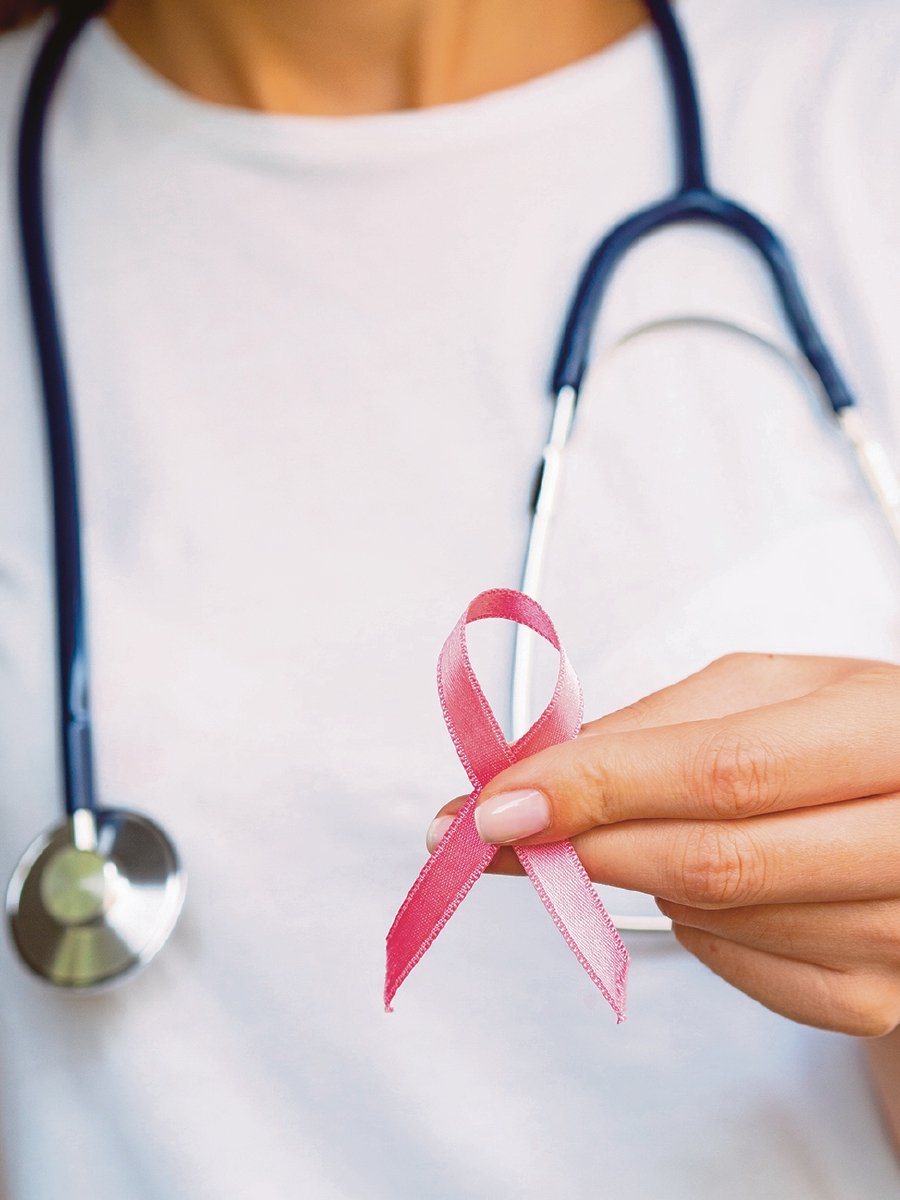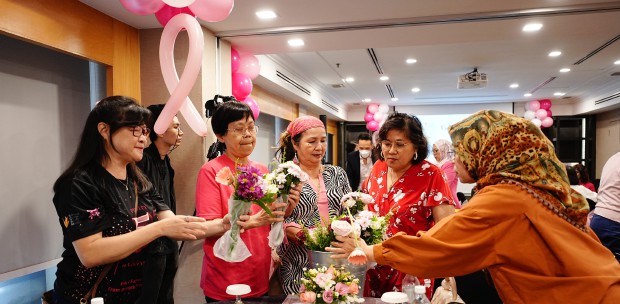BREAST cancer can strike anyone. Even men can get breast cancer, accounting for one per cent of cases. For women, while some factors that add to the risk such as genetics, family history and hormonal factors are non-modifiable, others, such as delaying childbirth or not having children at all are within their control.
Sunway Medical Centre consultant oncologist Dr Christina Lai Nye Bing says it is for this reason that married women are often advised to consider starting a family earlier.
Unfortunately, modern lifestyles with demanding careers often mean that having children is becoming less of a priority.
Dr Lai adds that locally, half of women diagnosed with the disease are under 50, underscoring the point that even young women should start paying attention to this condition.
Unfortunately, many patients often wait until a lump in their breast becomes painful and large before seeking medical consultation.
Early detection is key to improving breast cancer treatment outcomes. Regular health screenings, including mammograms, clinical breast exams and self-examinations, help detect cancer at its earliest, most treatable stages.
Dr Lai says the survival rate of individuals in the early stages is significantly higher compared with locally advanced (Stage 3) or metastatic (Stage 4) breast cancer.
Mammograms, typically recommended annually for women aged 40 and above, can detect precancerous breast calcifications, visible as white spots on X-ray images, indicating ductal carcinoma in situ (DCIS), also known as "stage 0" breast cancer.
While DCIS is often benign, it accounts for 20 per cent of all newly diagnosed breast cancer cases.
"People often avoid mammograms because of the discomfort. Nevertheless, breast cancer screening is a vital health inspection. If the process seems daunting, consider bringing a friend for moral support," says Dr Lai.

Diagnostic technologies, such as 3D mammography, have also improved early detection, even in patients with dense breast tissue, adds Dr Lai.
However, the most critical step starts at home, with women conducting regular self-examinations of their breasts as they are the ones most attuned to changes in their bodies.
"If you feel a lump in your breast, it is vital not to panic since only 10 to 20 per cent of lumps turn out to be cancerous."
The latest advancements in screening and oncology also offer hope to women facing breast cancer.
Dr Lai says hormone status and genomic studies provide valuable insights, allowing oncologists to tailor treatments to each patient's unique situation. This has led to targeted treatments that can significantly shrink or eliminate tumours.
Patients today also experience fewer side effects, thanks to innovations like hair-preserving chemotherapy machines, oncoplastic surgery for breast reconstruction, and improved anti-vomiting drugs.
While breast cancer remains a serious disease, early detection and evolving treatments offer hope.

Claim this iHerb promo code to stock up breast cancer medicines.




